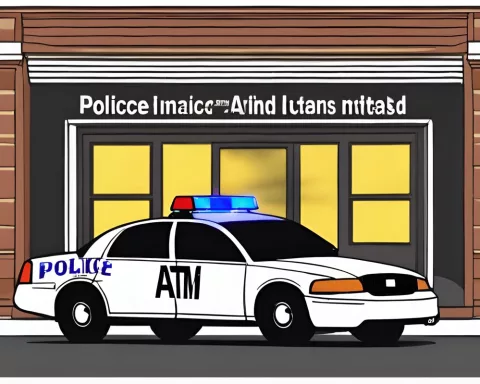The Town is taking proactive measures to protect crucial public infrastructure and security during stage 6 loadshedding, including the use of UPS systems with lithium-ion batteries for traffic signals. Residents are urged to report malfunctioning signals and turn off appliances before loadshedding commences. The Town’s sewage system and electricity supply are also being sustained through swift response measures, and public safety and readiness are being prioritized. Despite the challenges posed by high-stage loadshedding, the Town continues to endure and provide a glimmer of hope in difficult times.
Proactive Measures: Shielding the Public from Loadshedding Effects
The Town has implemented measures to lessen the impact of stage 6 loadshedding on crucial public infrastructure and security, including the use of UPS systems with lithium-ion batteries for traffic signals. Residents are urged to report malfunctioning signals and turn off appliances before loadshedding commences to mitigate the risk of additional power cuts.
Proactive Measures: Shielding the Public from Loadshedding Effects
When Eskom’s loadshedding reaches stage 6, the strength of the Town’s emergency plans undergo a stringent evaluation, indicating the enormous pressure on the ability to protect customers from the harsh effects of loadshedding stages. The Town has responded by guaranteeing its service providers are vigilant, identifying and lessening potential impacts on crucial public infrastructure and security.
An important responsibility of the Town is the operation of traffic signals. It is in charge of managing 1,641 traffic lights, 1,087 of which have Uninterruptible Power Supply (UPS) systems. A notable aspect of these UPS systems is the use of 360 lithium-ion batteries, which allow continuous operation during loadshedding at vital crossroads. Despite this, the persistent high-stage loadshedding poses a risk to the remaining UPS systems, potentially resulting in their breakdown. Therefore, the Town has urged its residents to perceive malfunctioning signals as four-way stops and swiftly inform the Transport Information Centre of extended blackouts.
Sustaining Vital Services: Sewer System and Electricity Supply
The Town’s sewage system is an additional sector grappling with difficulties due to ongoing loadshedding, increasing the possibility of sewer overflows. To counteract this, the Town has implemented a swift sewage spill response, coordinating the tasks of multiple departments. Primary actions, such as instant containment, rapid repairs, and momentary closures until the water quality is deemed safe, are given top priority. Sewer pump stations are never neglected, with permanent generators installed to guarantee sanitation resilience.
A key component of the Town’s infrastructure, electricity, although robust, is not invulnerable to the threat of prolonged loadshedding. The simultaneous restoration of power in an area, known as secondary tripping, can lead to additional power cuts. To mitigate this risk, residents are recommended to turn off appliances before loadshedding commences.
Persistent high-stage loadshedding also aggravates the susceptibility of the Town’s infrastructure to unlawful activities such as unauthorized connections and cable theft. The Town counteracts this by encouraging the public to report these activities, offering a reward of R5,000 for information leading to arrests or the recovery of stolen goods.
Public Facilities and Safety: The Impact on Swimming Pools and Infrastructure
Loadshedding directly influences swimming pool operations, with electricity being crucial for maintaining water quality. Pools may face sudden closures if standards diminish during loadshedding. Nevertheless, visitors present at the facility at that time can stay without using water, without incurring extra costs. Lengthy power outages resulting in mechanical breakdowns may necessitate short-term pool closures.
Public safety and readiness are crucial in this situation. Residents can report any damage to electrical infrastructure to the Public Emergency Centre. The Town, cognizant of the challenges posed by high-stage loadshedding, keeps guiding its emergency plans to assure public safety and the preservation of its infrastructure. To aid residents, useful information and loadshedding tips are provided on the Town’s website and other platforms.
The Town’s ability to endure stage 6 loadshedding exemplifies an outstanding case study in efficient public service. Keeping alert and prepared, prioritizing public safety, the Town continues to endure the ordeal of loadshedding, providing a glimmer of hope in these difficult times.
[Word count: 568]
1. What are the proactive measures implemented by the Town to protect public infrastructure during stage 6 load shedding?
The Town has implemented measures to protect public infrastructure and security during stage 6 load shedding, including the use of UPS systems with lithium-ion batteries for traffic signals. Residents are urged to report malfunctioning signals and turn off appliances before load shedding commences to mitigate the risk of additional power cuts.
2. How is the Town sustaining its sewage system and electricity supply during load shedding?
The Town has implemented a swift sewage spill response, coordinating the tasks of multiple departments to counteract the possibility of sewer overflows. Sewer pump stations have permanent generators installed to guarantee sanitation resilience. The Town also recommends residents turn off appliances before load shedding commences to mitigate the risk of additional power cuts.
3. How does load shedding affect swimming pool operations in the Town?
Load shedding directly influences swimming pool operations, with electricity being crucial for maintaining water quality. Pools may face sudden closures if standards diminish during load shedding. However, visitors present at the facility at that time can stay without using water, without incurring extra costs.
4. What is the impact of load shedding on the Town’s infrastructure and how is it being addressed?
Persistent high-stage load shedding aggravates the susceptibility of the Town’s infrastructure to unlawful activities such as unauthorized connections and cable theft. The Town counteracts this by encouraging the public to report these activities, offering a reward of R5,000 for information leading to arrests or the recovery of stolen goods. The Town also keeps guiding its emergency plans to assure public safety and the preservation of its infrastructure.
5. How many traffic lights are managed by the Town and what type of UPS systems are utilized?
The Town is in charge of managing 1,641 traffic lights, 1,087 of which have Uninterruptible Power Supply (UPS) systems. A notable aspect of these UPS systems is the use of 360 lithium-ion batteries, which allow continuous operation during load shedding at vital crossroads.
6. Where can residents find load shedding tips and useful information?
Residents can find useful information and load shedding tips on the Town’s website and other platforms. The Town keeps guiding its emergency plans to assure public safety and the preservation of its infrastructure.












